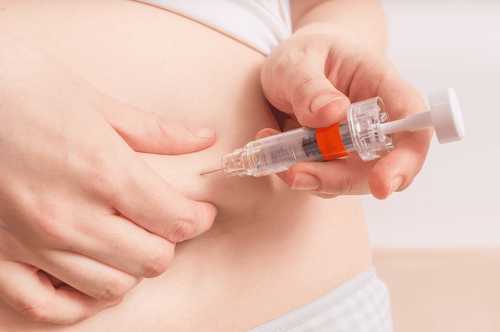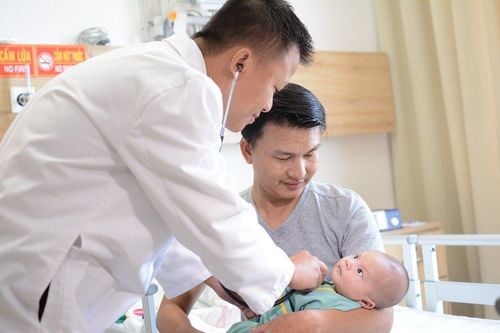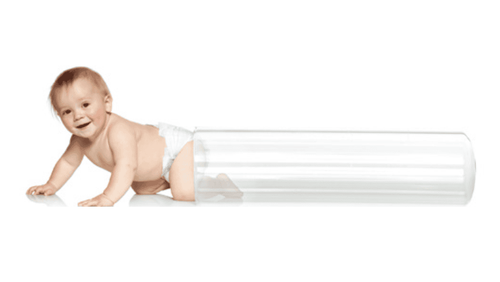This is an automatically translated article.
The article was professionally consulted with Specialist Doctor II Huynh Thi Hien - Obstetrician and Gynecologist - Department of Obstetrics and Gynecology - Vinmec Nha Trang International General Hospital.Some cancer treatments can interfere with having a baby. Chemotherapy, radiation therapy, and surgical interventions that damage the reproductive organs can affect your ability to have children.
1. Measures to protect fertility during cancer treatment
Collect, freeze eggs and sperm, or freeze embryos before undergoing cancer treatment. Patients need expert advice to protect reproductive organs during treatment. Patients can share and discuss with their families to agree on a number of assisted reproductive methods including asking a third party to assist in childbirth: (Please consider the following measures, which may be expensive or If you have legal problems, you should go to fertility centers for support) + For women, if the ovaries are not capable of producing healthy eggs anymore, they can apply for eggs. + For men, if the testicles are not capable of producing healthy sperm anymore, they can ask for sperm.+ Surrogacy for women (if the uterus can't carry a baby or it's not safe to get pregnant on her own)
2. Reproductive support measures for women with cancer
Women are born with a limited number of eggs in their ovaries, known as ovarian reserve. This reserve naturally decreases as a woman ages. But some chemotherapy treatments can lower this natural reserve even further.Fewer eggs make pregnancy more difficult. Low ovarian reserve also leads to early menopause, meaning there are no more eggs left. Your doctor will order blood tests and ultrasound to check ovarian reserve.
If you already have or are at risk of low ovarian reserve due to cancer treatment, fertility specialists can offer options for preserving fertility or improving your chances of becoming pregnant, including :
In vitro fertilization (IVF) : As a common assisted reproduction method, IVF uses specific drugs to stimulate the ovaries to produce eggs. These eggs are collected and fertilized with sperm in a laboratory. If successful, the egg will develop into a fetus. The egg is then put back into the woman's uterus to develop into a baby.
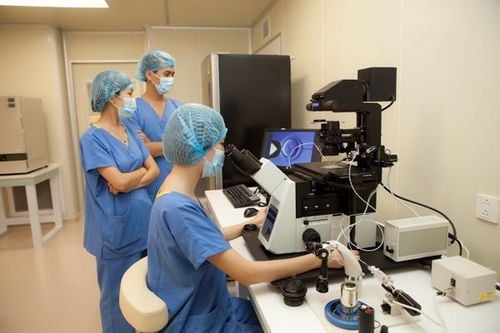
The donor egg method allows the baby to carry at least one parent's genes, donor eggs can be from:
Relatives Friends Anonymous donors Known donors from an organization Prior to egg donation, person Donors are required to be screened for:
Illness Risk of genetic disease Psychological problems Donor fetus: Similar to egg storage before cancer treatment, women can store fetuses before treatment. Infertility treatment can create more fetuses, at this point, couples can donate their fetuses, the process is similar to egg donation. The donor fetus is inserted into the uterus of the expectant woman. The baby born from a donor fetus will not carry the genetics of the parents who choose the method of fetal donation. These measures give women the feeling of motherhood.
3. Surrogate or surrogate mother
Sometimes, a woman may not be able to bear children, and even pregnancy is dangerous for many people. In such cases, asking someone else to act as a surrogate is also a solution.Surrogacy: Surrogacy is when the father's sperm is biologically inserted into the cervix or uterus of the surrogate, who will carry the baby throughout the pregnancy. This is called artificial insemination. Surrogate mother: A surrogate mother is a woman carrying a fetus that is combined from another woman's eggs and sperm from her partner's. The baby will not be born carrying the surrogate mother's genes. The laws on surrogacy and surrogacy vary from place to place, so it's important to consult an attorney when deciding whether to choose this route to have children.
4. For Men
Donor sperm: A man can store sperm before undergoing cancer treatment, as a measure of fertility preservation. If the man has not stored sperm before treatment, the man can use donor sperm.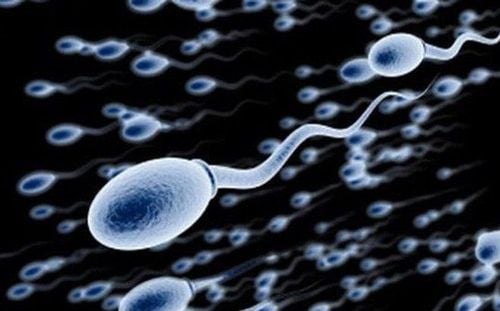
Testicular sperm collection (TESE): A man may have no sperm in his semen after cancer treatment, but he may still have healthy sperm in his testicles. During sperm collection from the testicle, the doctor removes a small portion of testicular tissue. Any healthy sperm cells found in this tissue can be used to create babies, such as for IVF, or frozen for future use. This method does not have a high success rate compared to other methods of sperm collection and storage.
Reproductive Support Center - Vinmec International General Hospital has the following outstanding advantages:
Being the leading center in Vietnam, built and applied comprehensive treatment and examination. It is a place that gathers a team of leading experts in the field of obstetrics and gynecology in the country and internationally. Customers are advised to understand the important meanings of egg storage, and are examined and assessed for the service status for storing eggs by leading experts in the industry. At Vinmec, the doctors and technicians who directly perform egg freezing have been trained at leading domestic and international fertility support centers to perform the process smoothly. Therefore, Vinmec achieves a very high percentage of eggs after defrosting, 95 - 98%. There is no difference in the quality of embryos from frozen and non-coagulated eggs. The egg retrieval process is quick and painless. Modern medical equipment for the examination and collection of eggs and ensuring egg storage in the most optimal environment for the longest time. Customers can directly visit Vinmec or contact the hotline for support.
Please dial HOTLINE for more information or register for an appointment HERE. Download MyVinmec app to make appointments faster and to manage your bookings easily.
Article referenced source: cancer.net





